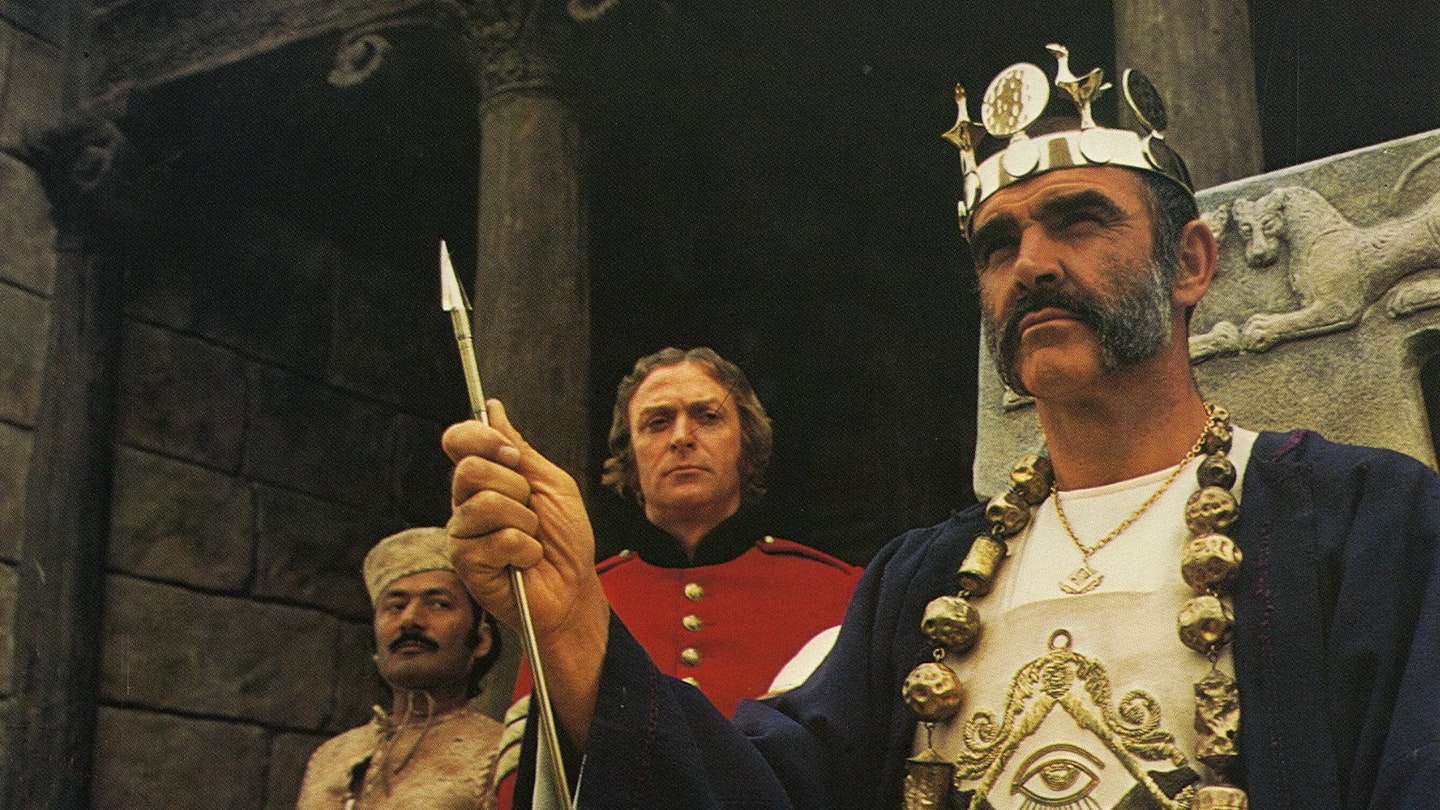A grand old tale from the Kipling canon, rich with high adventure and stiff with moral value, told with verve and simplicity by another old campaigner John Huston. Huston had been dwelling on this grand buddy drama for years, first contemplating Clark Gable and Humphrey Bogart in the roles of the two soldiers confusing greedy opportunity with a kind of nirvana, he then thought of Richard Burton and Peter O’Toole, before fixing on Michael Caine and Sean Connery who make the most of shedding their stereotypes for a pair of scoundrels. It could be argued, that they give the best performances of their career, a fact obscured by the film’s unassuming devotion to story.
At first Dravot and Carnehan are merely scavengers who pass through all the intemperate ravages the Himalayas can throw at them to a sheltered valley with a hidden city with its hoard of succulent treasures. The story being a critique of imperialism, the two set themselves up as surrogate godheads and rulers after Daniel is struck by an arrow only to appear uninjured (it got stuck in his bandolier). Daniel is considered the reincarnation of Alexander the Great. Thus they scheme to gather up enough riches then hightail back to civilisation.
It is the drug of power that will undo their callous plan. Connery, with a sublime interpretation of human corruption, shows how subtly Dravot comes to believe in his own lie, as if he has taken on the form of story or myth. Carnehan remains pragmatic and itches to run from the scene, and the fates are about to turn on them. Huston revels in he opportunity for old-fashioned splendour, granting the film the sunset glow of Lawrence Of Arabia and the swashbuckling cadence worthy of the Errol Flynn days. It’s the artful mix of Kipling’s own writing, flights of fantasy with a political core.
